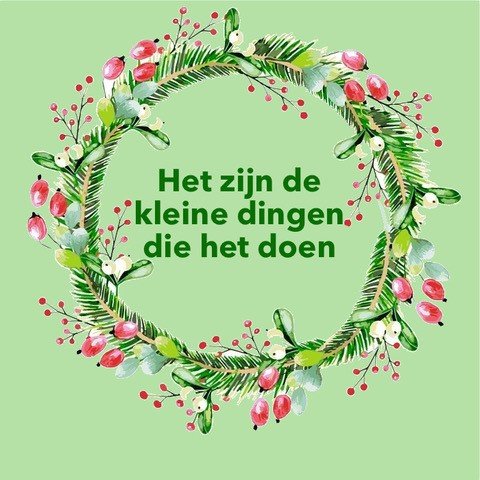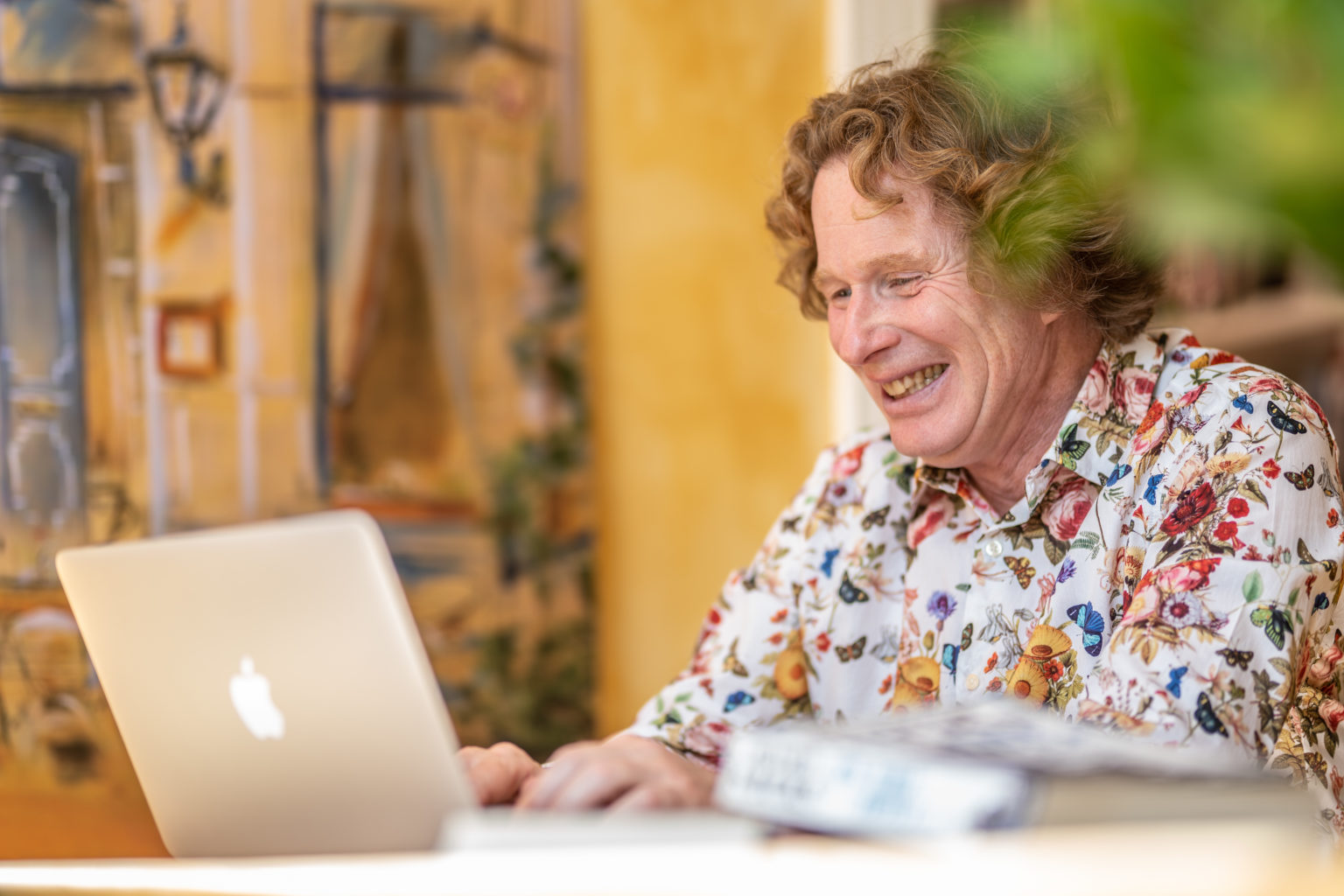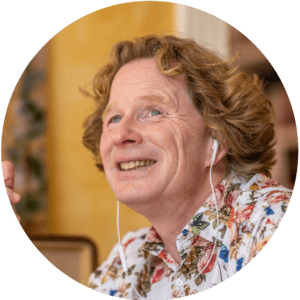Muziek bij Parkinson
Music is effective on motor, affective, and behavioral functions. We propose active music as a new method for inclusion in Parkinson’s rehabilitation programs.
Muziek na CVA (beroerte)
CVA-patiënten die één tot twee uur per dag muziek beluisteren, gaan meer vooruit in verbaal geheugen en gerichte aandacht dan cva patiënten die naar audioboeken luisteren of geen luistermateriaal gebruiken. Bovendien waren de muziekluisteraars minder verward en depressief dan de controlegroep.
Muziek in het Ziekenhuis
Conclusion: Music interventions significantly reduce anxiety and pain in adult surgical patients.
Muziek bij Chronische pijn
Dit onderzoek laat zien dat muziek effectief is in het verminderen van diverse pijnsoorten. Vooral muziek zonder tekst blijken lagere scores op pijn op te leveren, en wordt door de auteurs dan ook aanbevolen. Interessant is dat dit gegeven ook binnen danste fysiotherapie gehuldigd wordt.
Muziek bij Autisme
we suggest that music-based developmental training for attention and motor control may receive a critical new functional role in the treatment of autism due to the significant effect of auditory-motor entrainment on motor and attention functions and brain connectivity.
Muziek bij eenzaamheid
Bij depressie worden significante resultaten bereikt in het voordeel van de muziektherapie.
Muziek bij depressie
Bij depressie worden significante resultaten bereikt in het voordeel van de muziektherapie.
Muziek bij revalidatie
Music therapy in physical medicine and rehabilitationStanley Paul, David Ramsey Conclusion: The therapeutic effects of music are being recognized increasingly in the field of rehabilitation medicine. More music therapists are being employed in physical medicine and rehabilitation centres, with the goal of using music therapy services to assist in the physical recovery and health maintenance of clients. In spite of the benefits of physical rehabilitation programs, client participation to their full potential is often not observed. Music encourages participation in exercises and activities. Music can ease the discomfort and difficulty associated with exercise and therapy activities, and help ensure consistent participation. One of the goals of the music therapist is to provide a means for the client to express him/herself in a musical activity. Music therapy and rehabilitation medicine are starting to find a common niche in working together with clients who have various neurological, orthopaedic, and paediatric conditions. Therapeutic application of music in rehabilitation contributes to the quality of life of individuals with disabilities. Combined goals could include improving strength, range of motion, balance, communication, and cognition. Continued efforts in clinical practice and research will build on the information already available to further define possible applications of music therapy in rehabilitation, and its outcome and benefits. Occupational therapists can use the therapeutic medium of music, and the services of the music therapy discipline, in assisting clients to maximize their functional independence in their daily occupational roles. Lees hier het volledig artikel Music therapy in rehabilitationJoanna Strzemecka Conclusion: The use of music therapy in the rehabilitation is huge, but little appreciated. Music therapy is a method of cost-effective, non-invasive where it no reported its side effects. There are small number of studies and publications on the use of music as a form of rehabilitation. Lees hier het volledig artikel Wil je meer weten over het inzetten van muziek? Volg een MuziekGeluk training. vertel het verder: Facebook Twitter Envelope Linkedin Instagram Whatsapp
Muziek bij kanker
Music therapy in supportive cancer careMalgorzata Monika Stanczyk Conclusion: Cancer disrupts social, physical and emotional well-being and results in a range of emotions, including anger, fear, sadness, guilt, embarrassment and shame. Music therapy is a part of a complementary medicine program in supportive cancer care which accompanies medical treatment. There are many benefits of music therapy for cancer patients—interactive music therapy techniques (instrumental improvisation, singing) as well as receptive music therapy techniques (listening to recorded or live music, music and imaginary) can be used to improve mood, decrease stress, pain, anxiety level and enhance relaxation. Music therapy is an effective form of supporting cancer care for patients during the treatment process. It may be also basic for planning effective programs of rehabilitation to promote wellness, improve physical and emotional well-being and the quality of life. Lees hier het volledige artikel The use of music therapy during the treatment of Cancer patients: a Collection of evidencConstance Boyde, Ulrike Linden, Katja Boehm, Thomas Ostermann, Conclusion: The use of music therapy in the integrative treatment of cancer patients is a therapeutic option whose salutogenetic potential is shown in many case studies such as those presented here. Study results, however, did not draw a conclusive picture of the overall effect of music therapy. In addition to further clinical trials, the evidence mosaic should be complemented with qualitative studies, single case descriptions, and basic research.the use of music therapy during the treatment of Cancer patients: a Collection of evidence Background: Music therapy is one of the oldest forms of creative art therapy and has been shown to have effects in different clinical and therapeutic settings, such as schizophrenia, pain, cardiovascular parameters, and dementia. Lees hier het volledig artikel The effectiveness of music in relieving pain in cancer patientsHuang, Good, Zauszniewski CONCLUSIONS: Offering a choice of familiar, culturally appropriate music was a key element of the intervention. Findings extend the Good and Moore theory (1996) to cancer pain. Soft music was safe, effective, and liked by participants. It provided greater relief of cancer pain than analgesics alone. Thus nurses should offer calming, familiar music to supplement analgesic medication for persons with cancer pain. lees hier het gehele onderzoek Wil je meer weten over het inzetten van muziek? Volg een MuziekGeluk training. vertel het verder: Facebook Twitter Envelope Linkedin Instagram Whatsapp
Muziek is het Toverwoord

Muziek is het Toverwoord Toen u bij ons kwam wonen, was u een gevatte man met veel humor en altijd in voor een geintje. U vertelde graag over uw leven. Uw werk in de bouw, het bespelen van de klarinet, uw vrijwilligerswerk bij een museum. Hoe meer de dementie u in de greep kreeg, hoe moeilijker dit voor u werd. Ik heb verdriet bij u gezien, onmacht en daardoor boosheid, soms had ik het idee dat u uw zelf in de weg zat. Dat is zo triest om te zien, dat dementie op die manier grip krijgt op een mens. En een mist optrekt tussen de personen om u heen en u als persoon achter de dementie. Omdat ik u van begin af aan ken, wist ik dat u nu verhalen vertelt, die niet helemaal meer kloppen. Het doet mij verdriet om te zien wat die vervelende ziekte kan aanrichten. Waar u eerst nog het liefst dagelijks mee naar buiten ging voor een wandeling. Zit u nu in een rolstoel en heeft u hulp nodig om ergens te kunnen komen. Steeds vaker vraagt u na het eten of u naar uw kamer mag. U wordt dan onrustig en blijft deze vraag herhalen, soms vergeet u dan dat er nog eten of drinken voor u staat. Ik weet dat u altijd graag onze muziekavondjes bijwoonde en dat u dan altijd vrolijk meedeed, u was dan gezellig aanwezig. Als ik op een ochtend de huiskamer binnenkom en zie dat u daar bent, grijp ik mijn kans. Ik weet u met koffie en iets lekkers nog even op de huiskamer te houden. En de rust bij u te bewaren. Als ik dan muziek uit uw jeugd aanzet, zie ik een twinkeling in uw ogen verschijnen. Bij het lied: “Hoe jij heette dat ben ik vergeten“, zingt u enthousiast mee. (Corry Konings) Niet 1x heeft u gevraagd of u naar uw kamer mocht. U bent gebleven tot na de lunch en liet u meevoeren op de tonen van de muziek. Als wij een dag later onze gezamenlijke muziekavond willen gaan starten, bent u op uw verzoek weer op uw kamer. (als ik de huiskamer binnenkom.) Dus vraag ik aan de zorg of zij willen vragen of u ook wilt komen. En ik vertel dat u de dag ervoor zo goed reageerde op de muziek. Om de rust te creëren, startten wij alvast, zodat de tonen van de muziek u kunnen motiveren en de mist van dementie doet vervagen. Als u de huiskamer wordt binnen gebracht groet u ons dan ook vrolijk, de muziek doet zijn werk. Ik besluit deze avond er wat instrumenten bij te pakken. U krijgt een tamboerijn die u heftig mee laat klingelen op de muziek. U zit breed lachend in uw rolstoel en heeft er duidelijk schik in. Als wij voor een Feyenoord fan hand in hand gaan draaien, zingt u vrolijk mee, u zingt: “ Hand in hand karbonade” en uw ondeugende oogjes twinkelen van plezier. Dan komt het lied: “O wat ben jij mooi.” U laat de tamboerijn flink rammelen en roept gevat: “maar nu niet meer.” Elke keer als dat refrein komt dan komt u erachteraan met: “ maar nu niet meer.” Wat een schik , wat een plezier. U vraagt niet 1x of u naar uw kamer mag. U geniet , met volle teugen. Als wij daarna nog een borreltje schenken, is voor u het feest compleet. Dit is goud, zo vrolijk, zo blij rammelt uw tamboerijn. Vlug maak ik een paar foto’s van u. Als aan het einde van de avond de zorg u komt halen en vraagt hoe uw avond was, zegt u: “matig.” Ik lach en weet wel beter. De mooie foto’s zijn het bewijs. Hoe leuk is het dan dat de zorg in het dossier vermeldt dat u zo heeft genoten en dat uw familie de foto’s toegestuurd krijgt. Dat vind ik nou warme zorg, ook stilstaan bij de familie. Het zijn de kleine dingen die het doen. Kleine moeite, enorm groot plezier. En dat is ook de kracht van de muziek. Muziek is het toverwoord, muziek gaat verder waar woorden tekort schieten. Muziek weet de dementie te bespelen. Even lachen, even plezier, even dat geluksmomentje, even is dementie naar de achtergrond. Ik wens iedereen hele fijne feestdagen toe. Ook al zijn ze wat anders dan normaal. Stay safe, kijk naar elkaar om, juist in deze dagen en maak er wat van. Weet dat de zorgkanjers met hun gouden hart altijd aan het werk zijn, ook met de feestdagen. Dus ook al is het niet de kerst of oud en nieuw wat je gehoopt had. Een klein gebaar, kan al heel veel doen. Een goed uiteinde en een heel goed en gezond begin van het nieuwe jaar. Een jaar waarin al jullie wensen uit mogen komen. Een jaar waar veel muziek inzit. Dat wens ik jullie van harte toe. Liefs Lionne


